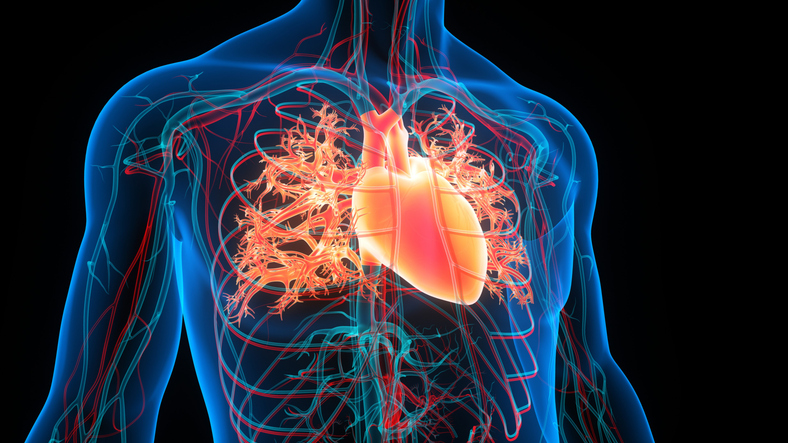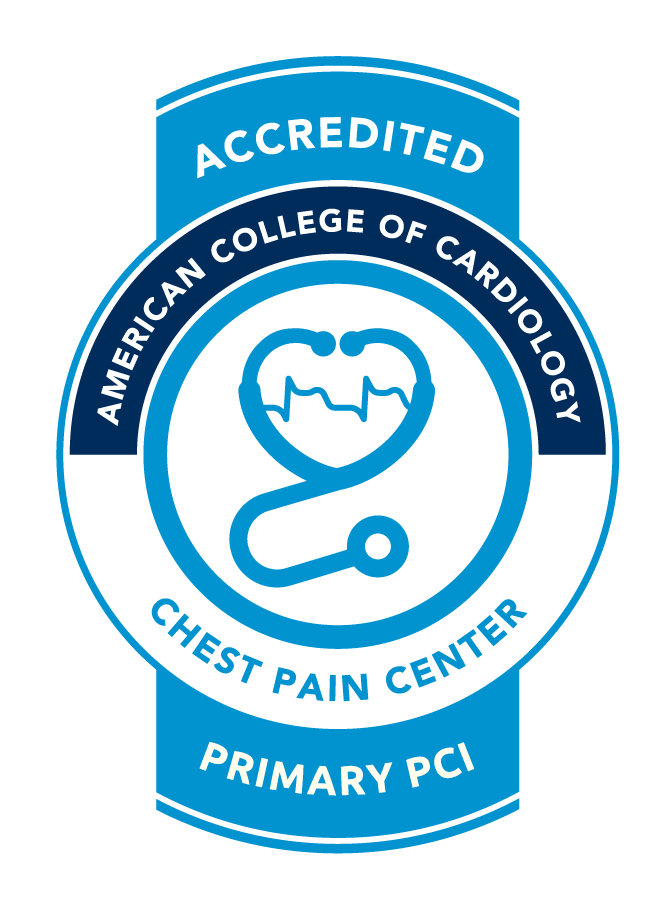Seeing a Cardiologist
Seeing a Cardiologist
Seeing a Cardiologist
Carilion Clinic cardiologists are experts in every area of heart care.
From preventive care to interventions that help you avoid surgery, we’re the heart experts in your own backyard. In fact, we have more than 30 cardiologists in more than 30 locations. That means you can get in to see us right away and get procedures scheduled quickly.
We're here for you and your family when it comes to screening, heart attack care, the latest minimally invasive heart treatments and more.
Carilion Clinic cardiologists are experts in every area of heart care.
From preventive care to interventions that help you avoid surgery, we’re the heart experts in your own backyard. In fact, we have more than 30 cardiologists in more than 30 locations. That means you can get in to see us right away and get procedures scheduled quickly.
We're here for you and your family when it comes to screening, heart attack care, the latest minimally invasive heart treatments and more.
A cardiologist is a doctor who specializes in screening for and treating heart conditions. They are usually your first stop on your heart care journey, and they will coordinate whatever other heart or blood vessel experts you need.
They often order tests to help screen for or diagnose a heart condition. These range from noninvasive tests to special imaging that requires a needle prick and sometimes sedation.
Depending on their training, a cardiologist may also do heart procedures, called interventional cardiology. These procedures use tiny incisions to feed small tubes containing tools called catheters into the blood vessels. These procedures aren’t considered surgery.
Cardiologists can be generalists or specialists. A general cardiologist can refer you to a more specialized one. They can also refer you to a heart surgeon, vascular surgeon or cardiac rehab program.
At Carilion, our pediatric cardiologists work with children with heart defects and other heart-related health issues.
What conditions do cardiologists treat?
Cardiologists diagnose and treat a wide range of conditions related to the function of your heart.
These include:
- Chest pain: Chest pain, or angina, is a warning sign for heart disease and heart attack. It happens if your heart isn’t getting enough oxygen-rich blood. A cardiologist can diagnose what’s causing the blood flow issue and help you get risk factors under control.
- Coronary artery disease: When your coronary arteries narrow, blood can’t reach your heart. We can order a series of tests to see how blocked your arteries are so they can best treat you.
- Heart valve problems: Heart valve disease is how your heart valves open and close. Cardiologists may start by managing valve diseases with medicine. They may suggest procedures and surgeries that repair or replace heart valves.
- Arrhythmia: Arrhythmias make your heart beat irregularly. The most common arrhythmia is atrial fibrillation. Electrophysiologists (EPs) are cardiologists who specialize in heart rhythm problems.
- Heart inflammation: Viruses and bacteria can cause inflammation in different areas of your heart. Cardiologists usually start by treating these conditions with medicine but can refer you for more interventions if needed.
- Heart failure: Cardiologists help treat heart failure. They prescribe medicine and can help you decide when more treatment might benefit you.
- Heart defects: Some children are born with differences in their hearts that can affect how well they work. These can include a hole in the heart's wall or a narrowing of the vessels or valves.
What Is a Cardiologist?
A cardiologist is a doctor who specializes in screening for and treating heart conditions. They are usually your first stop on your heart care journey, and they will coordinate whatever other heart or blood vessel experts you need.
They often order tests to help screen for or diagnose a heart condition. These range from noninvasive tests to special imaging that requires a needle prick and sometimes sedation.
Depending on their training, a cardiologist may also do heart procedures, called interventional cardiology. These procedures use tiny incisions to feed small tubes containing tools called catheters into the blood vessels. These procedures aren’t considered surgery.
Cardiologists can be generalists or specialists. A general cardiologist can refer you to a more specialized one. They can also refer you to a heart surgeon, vascular surgeon or cardiac rehab program.
At Carilion, our pediatric cardiologists work with children with heart defects and other heart-related health issues.
What conditions do cardiologists treat?
Cardiologists diagnose and treat a wide range of conditions related to the function of your heart.
These include:
- Chest pain: Chest pain, or angina, is a warning sign for heart disease and heart attack. It happens if your heart isn’t getting enough oxygen-rich blood. A cardiologist can diagnose what’s causing the blood flow issue and help you get risk factors under control.
- Coronary artery disease: When your coronary arteries narrow, blood can’t reach your heart. We can order a series of tests to see how blocked your arteries are so they can best treat you.
- Heart valve problems: Heart valve disease is how your heart valves open and close. Cardiologists may start by managing valve diseases with medicine. They may suggest procedures and surgeries that repair or replace heart valves.
- Arrhythmia: Arrhythmias make your heart beat irregularly. The most common arrhythmia is atrial fibrillation. Electrophysiologists (EPs) are cardiologists who specialize in heart rhythm problems.
- Heart inflammation: Viruses and bacteria can cause inflammation in different areas of your heart. Cardiologists usually start by treating these conditions with medicine but can refer you for more interventions if needed.
- Heart failure: Cardiologists help treat heart failure. They prescribe medicine and can help you decide when more treatment might benefit you.
- Heart defects: Some children are born with differences in their hearts that can affect how well they work. These can include a hole in the heart's wall or a narrowing of the vessels or valves.
Your primary care doctor may refer you to a Carilion cardiologist. Or you can self-refer.
Some reasons you might schedule a visit include:
- You’ve been having chest pain, especially chest pain that seems worse while exercising or doing other activities.
- You often feel short of breath, with or without dizziness.
- Your heart has a feeling of “skipping” a beat or often feels like it’s racing.
- You have key risk factors, including high blood pressure, high cholesterol or a family history of heart disease.
- You have a history of smoking. (Cardiologists can refer you to smoking cessation programs.)
- You have diabetes, which is a major risk factor for heart disease.
Why See a Cardiologist?
Your primary care doctor may refer you to a Carilion cardiologist. Or you can self-refer.
Some reasons you might schedule a visit include:
- You’ve been having chest pain, especially chest pain that seems worse while exercising or doing other activities.
- You often feel short of breath, with or without dizziness.
- Your heart has a feeling of “skipping” a beat or often feels like it’s racing.
- You have key risk factors, including high blood pressure, high cholesterol or a family history of heart disease.
- You have a history of smoking. (Cardiologists can refer you to smoking cessation programs.)
- You have diabetes, which is a major risk factor for heart disease.
Your cardiologist will do a physical exam, including listening to your heart. They’ll ask about any symptoms and risk factors you have. They’ll likely do blood work and try to understand your overall health.
Most of the time, your cardiologist will order some tests to check your heart.
Cardiology tests
Some of the most common heart tests include:
- EKG: A quick, noninvasive test that measures your heart’s electrical activity. It can help us diagnose an arrhythmia.
- Echocardiogram: A noninvasive test that uses sound waves to produce pictures of your heart and blood vessels. It lets us see how blood flows through your blood vessels.
- Stress test: This test has you either walk on a treadmill or ride an exercise bike while monitoring your heart. It helps us learn about the health of your heart.
- Cardiac CTA: A noninvasive test that uses X-rays to produce layers of images of the heart. It helps us see if your coronary arteries have plaque.
- Cardiac MRI: A test that uses a magnet and radio waves to produce high-quality, detailed images of your heart and blood vessels. It helps us diagnose many heart conditions.
- Cardiac PET: This test uses a special dye to create pictures of your heart. It helps us assess the heart's blood flow and can show any damage from a heart attack.
- Angiogram: This test requires a small cut in the skin because it uses a catheter to reach the heart's blood vessels. It helps us diagnose coronary artery disease, and we can also place a stent to open a blocked artery.
Cardiology treatments
In some cases, your cardiologist will refer you to other heart specialists right away. But for many heart conditions, a general cardiologist can help.
Treatments cardiologists prescribe include:
- Lifestyle changes: Quitting smoking, exercising and eating heart-healthy foods can improve heart disease.
- Medicine: You may need drugs to control high blood pressure, lower cholesterol, control your heart rate or reduce your risk of blood clots.
- Heart devices: These help monitor your heart and help your cardiologist learn more about your condition.
- Cardiac rehab: This supervised exercise program is specifically designed for people who’ve had heart surgery or a heart attack. It’s also for people who are living with certain heart conditions. For example, if you have coronary artery disease or angina, cardiac rehab can help.
If you have heart surgery or another heart procedure, you’ll keep seeing your cardiologist regularly. They’ll help monitor how well your heart or blood vessels are performing after your procedure.
What Should I Expect?
Your cardiologist will do a physical exam, including listening to your heart. They’ll ask about any symptoms and risk factors you have. They’ll likely do blood work and try to understand your overall health.
Most of the time, your cardiologist will order some tests to check your heart.
Cardiology tests
Some of the most common heart tests include:
- EKG: A quick, noninvasive test that measures your heart’s electrical activity. It can help us diagnose an arrhythmia.
- Echocardiogram: A noninvasive test that uses sound waves to produce pictures of your heart and blood vessels. It lets us see how blood flows through your blood vessels.
- Stress test: This test has you either walk on a treadmill or ride an exercise bike while monitoring your heart. It helps us learn about the health of your heart.
- Cardiac CTA: A noninvasive test that uses X-rays to produce layers of images of the heart. It helps us see if your coronary arteries have plaque.
- Cardiac MRI: A test that uses a magnet and radio waves to produce high-quality, detailed images of your heart and blood vessels. It helps us diagnose many heart conditions.
- Cardiac PET: This test uses a special dye to create pictures of your heart. It helps us assess the heart's blood flow and can show any damage from a heart attack.
- Angiogram: This test requires a small cut in the skin because it uses a catheter to reach the heart's blood vessels. It helps us diagnose coronary artery disease, and we can also place a stent to open a blocked artery.
Cardiology treatments
In some cases, your cardiologist will refer you to other heart specialists right away. But for many heart conditions, a general cardiologist can help.
Treatments cardiologists prescribe include:
- Lifestyle changes: Quitting smoking, exercising and eating heart-healthy foods can improve heart disease.
- Medicine: You may need drugs to control high blood pressure, lower cholesterol, control your heart rate or reduce your risk of blood clots.
- Heart devices: These help monitor your heart and help your cardiologist learn more about your condition.
- Cardiac rehab: This supervised exercise program is specifically designed for people who’ve had heart surgery or a heart attack. It’s also for people who are living with certain heart conditions. For example, if you have coronary artery disease or angina, cardiac rehab can help.
If you have heart surgery or another heart procedure, you’ll keep seeing your cardiologist regularly. They’ll help monitor how well your heart or blood vessels are performing after your procedure.
Not only do we offer routine heart care in your neighborhood, but we're also a destination for many specialty surgeries. Carilion offers programs and new heart treatments that are unique to our area, drawing people from across Virginia and neighboring states.

More cardiologists in more places
Our cardiology team is one of the largest in the region. With 30+ cardiologists and 30+ locations, we specialize in all areas of heart care and have the most experienced heart catheterization lab in the area.

State-of-the-art imaging to catch heart disease early
We use the latest technology to view all areas of your heart, from the structures and blood flow to the degree of plaque build-up. We use advanced nuclear imaging to get pictures of your heart, helping us pick the right treatment for you.

Lifesaving heart attack care
We're an accredited Chest Pain Center. This designation means we offer the best possible lifesaving care for heart attacks. We treat more than 700 heart attacks a year, using the protocol that research confirms gets the best outcomes.
Why Choose Carilion Clinic?
Not only do we offer routine heart care in your neighborhood, but we're also a destination for many specialty surgeries. Carilion offers programs and new heart treatments that are unique to our area, drawing people from across Virginia and neighboring states.
Health and Wellness

Lifestyle Medicine: Positive Changes, Powerful Results

Decisions, Decisions: How To Choose Your Heart

Heart Health Is About More Than Food and Exercise
Get Care at Carilion Clinic
Your path to better health starts here. Explore comprehensive care options and find the support you need for every step of your wellness journey.
Get Care at Carilion Clinic
Your path to better health starts here. Explore comprehensive care options and find the support you need for every step of your wellness journey.
Get Care at Carilion Clinic
Your path to better health starts here. Explore comprehensive care options and find the support you need for every step of your wellness journey.
Get Care at Carilion Clinic
Your path to better health starts here. Explore comprehensive care options and find the support you need for every step of your wellness journey.
